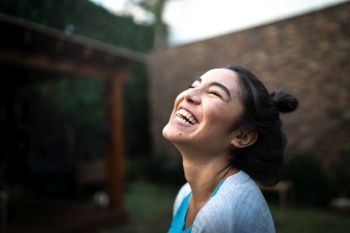
Giggle Incontinence was first reported in 1959 in children. Unlike adult women who leak urine with laughing, due to stress incontinence, in children the reason for Giggle Incontinence is not entirely known.
It has been proposed that perhaps it’s caused by an overactive bladder, or some release of pelvic muscle control with extreme emotional discharge.
Think of the total loss of muscle control when an extreme emotion overtakes you: fear is a good example. Under heavy emotional stress, control of the urethral sphincter or a spontaneous bladder contraction can occur leading to full-on urination.
Is it a brain reaction or a bladder reaction? It is not clear but in a small subset of female children, extreme laughter can lead to full-on urination and bladder emptying, not simply a little squirt of pee with a heavy laugh like mom.
Some industrious researchers in Korea set out to study Giggle Incontinence in teenage girls and tried to see what was happening to the bladder during urination before and after treatment. Past treatments for Giggle Incontinence included overactive bladder medications.
They treated 9 teenage girls between the ages of 12 and 19 who had pure giggle incontinence with methylphenidate (Ritalin) for 1 year. All had resolution of their symptoms, and none suffered side effects of the medication. They noted high urethral pressures after treatment, and it took approximately 7 months to see full resolution.
What is the significance of such a study?
It may be useful in children with ADD/ADHD who may be considered for Ritalin treatment. Treating children with medication is a complex and individualized judgment. In the absence of ADD/ADHD and if GI is severe and debilitating or embarrassing for the patient, there is an available option, and this study adds to the available evidence already.
Arizona Center for Bladder Health
523 Rose Lane
Wickenburg, AZ 85390
Get Directions